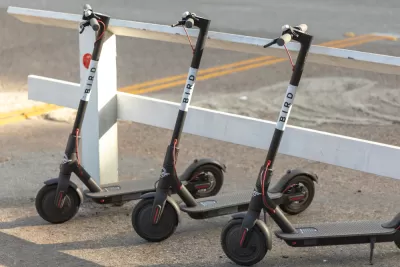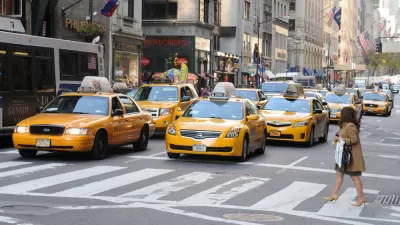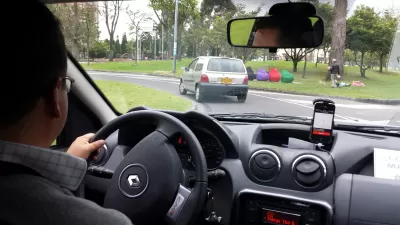Examples like Elon Musk's subway plan in Chicago, app-driven electric scooters littering sidewalks, and Amazon's general preponderance may point to a tech-dominated urban future. But are localities ceding too much power to the private sector?

Farhad Manjoo takes cities to task for allowing tech firms like Uber, Amazon, and, more recently, Bird, to steamroll in and essentially disrupt the civic processes that restrict everyone else from doing what they please with urban space.
Federal and state authorities, Manjoo says, haven't stepped up to confront housing shortages and infrastructural problems. That gives tech firms an opening to court public opinion. At the same time, online media increasingly drives public attention toward national issues at the expense of local ones.
"One reason tech companies can command greater say in local issues is that many other local institutions, from small businesses to local newspapers, have lost much of their influence — thanks, in large part, to the internet."
The case can be made that tech-driven transport alternatives are a boon for cities. Take the ridesharing explosion, alternative modes like electric scooters, or even projects like Elon Musk's Loop in Chicago. But as Manjoo writes about companies like Bird, "the real problem is that they just appeared out of nowhere one day, suddenly seizing the sidewalks, and many citizens felt they had no real agency in the decision."
FULL STORY: How Tech Companies Conquered America’s Cities

Alabama: Trump Terminates Settlements for Black Communities Harmed By Raw Sewage
Trump deemed the landmark civil rights agreement “illegal DEI and environmental justice policy.”

Study: Maui’s Plan to Convert Vacation Rentals to Long-Term Housing Could Cause Nearly $1 Billion Economic Loss
The plan would reduce visitor accommodation by 25% resulting in 1,900 jobs lost.

Planetizen Federal Action Tracker
A weekly monitor of how Trump’s orders and actions are impacting planners and planning in America.

Waymo Gets Permission to Map SF’s Market Street
If allowed to operate on the traffic-restricted street, Waymo’s autonomous taxis would have a leg up over ride-hailing competitors — and counter the city’s efforts to grow bike and pedestrian on the thoroughfare.

Parklet Symposium Highlights the Success of Shared Spaces
Parklets got a boost during the Covid-19 pandemic, when the concept was translated to outdoor dining programs that offered restaurants a lifeline during the shutdown.

Federal Homelessness Agency Places Entire Staff on Leave
The U.S. Interagency Council on Homelessness is the only federal agency dedicated to preventing and ending homelessness.
Urban Design for Planners 1: Software Tools
This six-course series explores essential urban design concepts using open source software and equips planners with the tools they need to participate fully in the urban design process.
Planning for Universal Design
Learn the tools for implementing Universal Design in planning regulations.
Caltrans
Smith Gee Studio
Institute for Housing and Urban Development Studies (IHS)
City of Grandview
Harvard GSD Executive Education
Toledo-Lucas County Plan Commissions
Salt Lake City
NYU Wagner Graduate School of Public Service





























